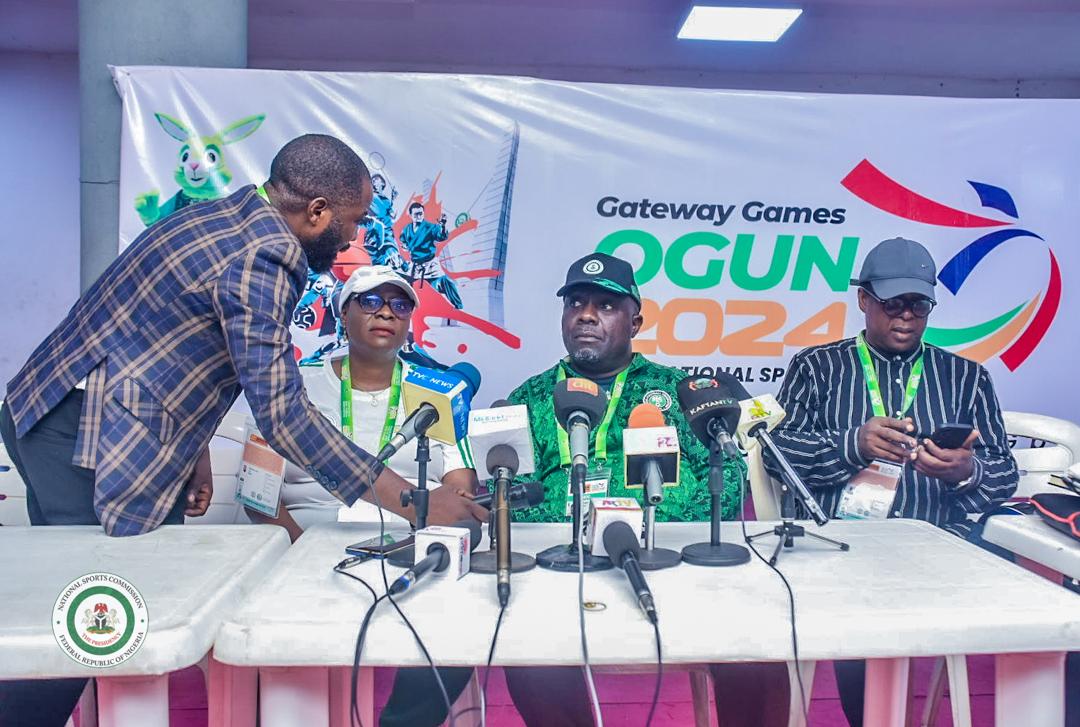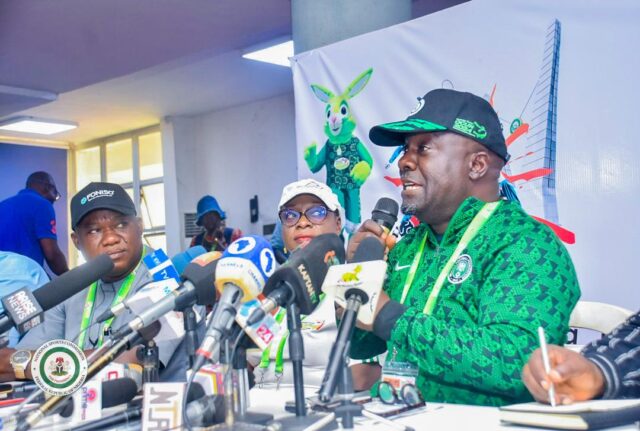The Director General of the National Sports Commission (NSC), Hon. Bukola Olopade, has called on more states across Nigeria to embrace the opportunity to host the National Sports Festival (NSF), citing its immense economic and developmental value.
Speaking at his first official press conference at the ongoing 22nd NSF in Abeokuta, Ogun State, Olopade painted a compelling picture of how sports can be a major driver of both commerce and community growth.
Read Also: Stay Close To The Action: LINKS Bed & Breakfast Offers Premium Comfort Near MKO Abiola Stadium
According to the DG, the benefits of hosting a festival of this scale go far beyond medals and records. “You cannot underestimate the power of sports,” Olopade stated. “From infrastructural development to capacity building, entertainment, and hospitality—sports touches everything.”

Highlighting the soft and hard gains from the event, Olopade pointed out that NSF 2025 has catalyzed massive economic activity across the host state. Over 300 small businesses are currently operating within stadium premises, and another 100 around key venues like Babcock University, he noted.
The festival has also triggered a surge in cultural commerce, with local fabric makers reporting a boom in Adire sales. “In the last ten days alone, over a million Adire fabrics have been sold. Some sellers are even out of stock,” Olopade revealed, underlining the symbiotic relationship between sports and indigenous enterprise.
He also stressed the promotional power of global visibility. “The opening ceremony was broadcast in over 50 countries. How do you put a price on that kind of exposure for Ogun State? That’s international branding on a silver platter.”
Hotels across the state are running at near-full capacity, and hospitality providers are reporting unprecedented footfall. “The revenues being generated by these sectors are enormous and transformative,” Olopade added.
Beyond commerce, the DG emphasized the long-term infrastructural gains—new roads, renovated facilities, and a skilled workforce—all of which will outlast the duration of the Games.
In wrapping up, he urged the media to continue their partnership with the NSC to help position sports not only as entertainment but as a cornerstone of national development and economic opportunity.
“We want the media to help us tell this story—not just of sports—but of opportunity, growth, and unity. Every host state becomes a beneficiary of this national movement,” Olopade concluded.
With the National Sports Festival proving to be both a sporting spectacle and a business bonanza, the message is clear: the real winners may be found not only on the podium, but in the communities that host the Games.









